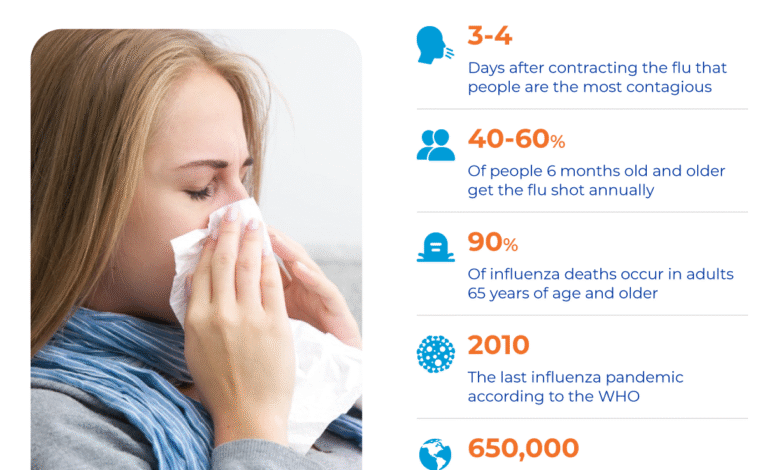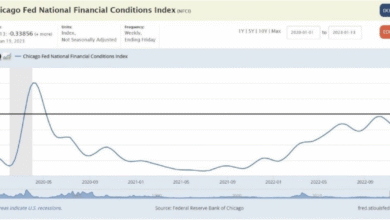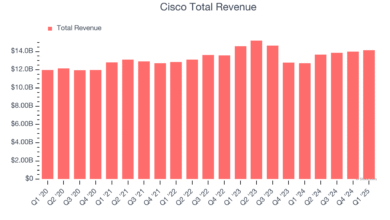Moderna Flu Vaccine: Promising Results for Combined Shots

The Moderna flu vaccine is generating excitement in the medical community as it demonstrates promising results from late-stage trials, positioning it as a potential game changer in the fight against seasonal influenza. Moderna’s mRNA-based flu vaccine has shown a considerably stronger immune response compared to traditional flu vaccines, marking a significant breakthrough in vaccine efficacy. This innovative vaccine not only enhances individual protection but also lays the groundwork for a combination vaccine approval that could target both Covid-19 and influenza. With the launch of its standalone flu vaccine, named mRNA-1010, forthcoming, Moderna is on the brink of reshaping vaccination strategies. As healthcare professionals advocate for improved vaccination rates, the Moderna flu vaccine could play a pivotal role in safeguarding public health during flu season and beyond.
The recent developments surrounding Moderna’s innovative flu immunization highlight a significant shift in the landscape of seasonal vaccination. This state-of-the-art mRNA-based vaccine has outperformed conventional flu shots in clinical trials, showcasing its potential for a more robust immune defense. As we navigate through a world still impacted by Covid-19, discussions on combination vaccines are becoming increasingly relevant, especially with the aim of streamlining healthcare efforts. The prospect of combining the efficacy of Covid and flu vaccines presents an important opportunity for improving public health outcomes. As Moderna prepares to resubmit its application for these breakthrough vaccines, the future of flu immunization looks promising.
Understanding the Moderna Flu Vaccine and Its Advanced mRNA Technology
Moderna has made significant strides in developing its mRNA-based flu vaccine, which aims to revolutionize the way we protect ourselves against influenza. Unlike traditional flu vaccines that use inactivated or weakened viruses, Moderna’s innovative approach leverages the power of messenger RNA (mRNA), which instructs cells to produce a protein that triggers an immune response. The results from Moderna’s late-stage trials indicated that this novel vaccine not only generated a more robust immune response compared to existing options but also paved the way for future combinations of flu and Covid shots, showcasing the versatility of mRNA technology in vaccination.
This experimental flu vaccine, named mRNA-1010, has become a focal point for Moderna as they plan to seek regulatory approval. By demonstrating superior efficacy in their trials, particularly for older adults who are at higher risk of severe flu complications, the company solidifies its foothold in the vaccine market. The promise of mRNA technology lies not just in treating seasonal strains of influenza but potentially addressing variants and emerging pathogens, emphasizing the need for ongoing investment and research in this field.
Comparing Vaccine Efficacy: Moderna vs. Traditional Flu Vaccines
In recent trials, Moderna’s flu vaccine has shown an impressive 26.6% increase in efficacy over traditional flu vaccines, especially significant for communities vulnerable to severe outcomes. This makes the case for mRNA-based solutions even stronger, as they hold the potential to provide effective immunization on a larger scale. The phase three trial data, which involved over 40,000 participants aged 50 and older, highlighted that Moderna’s vaccine performed consistently well irrespective of age and risk factors, showcasing its reliability for broader population segments.
As health organizations recommend annual vaccinations to shield against flu strains, the increased efficacy of Moderna’s vaccine bodes well for enhancing vaccine uptake. The potential addition of Moderna’s flu vaccine to routine immunization schedules could alleviate strain on healthcare systems, particularly during peak flu seasons, thereby reinforcing the importance of flu vaccinations within public health frameworks.
The Path to Combination Vaccine Approval: What to Expect
Moderna’s efforts to develop a combination vaccine that addresses both Covid-19 and influenza have been met with rigorous scrutiny, particularly following the company’s decision to withdraw its application earlier this year. However, with promising new data from the mRNA-1010 trials, Moderna is prepared to resubmit for approval. The anticipation surrounding this combination jab highlights a growing trend towards multi-variant vaccines that could simplify vaccination logistics for healthcare providers and improve public health outcomes overall.
The combination vaccine aims not only to reduce overall healthcare costs but also to increase vaccination rates by providing a more convenient solution for patients. This innovation reflects a broader movement toward integrating vaccines into a more streamlined process, particularly as we navigate ongoing COVID-19 variants. The ability to administer a single shot targeting both illnesses could significantly improve patient compliance and ultimately contribute to greater community immunity.
The Role of mRNA in Vaccine Advancement
The advent of mRNA technology has transformed the landscape of vaccine development. With its ability to generate targeted immune responses, mRNA-based vaccines like those developed by Moderna represent a paradigm shift from traditional methods. This technology allows for faster development and adaptability, which is crucial in responding to emerging viral threats. As we saw with the rapid deployment of the Moderna Covid shot during the pandemic, mRNA vaccines can be engineered and manufactured at unprecedented speeds.
Furthermore, the versatility of mRNA technology means that its applications extend beyond Covid-19 and flu vaccinations. Future immunization strategies could focus on various infectious diseases, optimizing the immune response generated by the body. By expanding the use of mRNA in vaccines, we may not only enhance current immunization efforts but also pave the way for entirely new classes of preventative treatments, ensuring better public health outcomes in the long run.
Health Implications of a Successful Moderna Influenza Vaccine
If approved, Moderna’s influenza vaccine could dramatically reduce the incidence of flu-related hospitalizations, which burden healthcare systems annually. Historical data has shown that flu seasons can lead to significant morbidity and mortality, particularly among vulnerable populations. The promising efficacy results from Moderna’s trials could indicate a new era of flu prevention, one that is synchronized with outbreak responses and emphasizes proactive healthcare measures.
Moreover, improved vaccination rates resulting from a successful mRNA flu vaccine may have downstream effects on community health. Increased immunity within populations can lead to herd immunity, subsequently reducing transmission rates and protecting those unable to receive vaccines due to medical conditions. In effectively combating both Covid-19 and influenza with a combination vaccine, Moderna not only enhances individual health outcomes but also contributes to the overall stability of public health systems.
Moderna’s Strategic Positioning in the Vaccine Market
Moderna’s entry into the flu vaccine market positions the company uniquely within the competitive landscape of vaccine production. With the global focus on vaccine development fueled by previous health crises, Moderna is set to leverage its breakthrough technology and clinical trial expertise to capture significant market share. The strategic pivot from pandemic-specific vaccines to seasonal immunizations reflects an agile business model, ready to adapt as public health needs evolve.
As Moderna moves towards market launch, the company is also likely to cultivate partnerships with healthcare providers and governments to facilitate distribution. By ensuring equitable access to their flu vaccine, Moderna can enhance its global presence and reinforce public trust in vaccination efforts. Their commitment to advancing immunization strategies signals a robust long-term vision aimed at keeping populations healthy amidst evolving viral threats.
Safety Considerations for the Moderna Flu Vaccine
Safety is a fundamental aspect of vaccine development, and Moderna prioritizes rigorous testing protocols to ensure that its flu vaccine meets the highest safety standards. The phase three trials not only measure efficacy but also closely monitor any adverse effects among participants. By ensuring transparency in safety and efficacy data, Moderna aims to foster public confidence in its mRNA-based flu vaccine as it approaches regulatory approval.
Public health organizations emphasize that all vaccines, including new mRNA options, undergo extensive evaluation before reaching the market. The comprehensive safety assessments coupled with ongoing monitoring further minimize risks associated with vaccines. Moderna’s commitment to rigorous safety standards reinforces the reassuring message to the public that vaccination is a vital tool for disease prevention, particularly during the challenging flu seasons.
The Impact of Seasonal Flu on Public Health
Seasonal flu poses significant challenges to public health systems, leading to hospitalizations and, in severe cases, fatalities. In past flu seasons, the burden on healthcare providers has been immense, with over 600,000 hospitalizations reported last year alone. Understanding the cyclical impact of influenza on healthcare resources highlights the urgent need for advanced vaccination strategies that can more effectively combat seasonal strains.
Moreover, the intersection of flu outbreaks and ongoing public health responses to Covid-19 lends urgency to the adoption of new vaccines like Moderna’s flu shot. The dual threat posed by both respiratory viruses underscores the necessity for comprehensive vaccination campaigns that encourage flu immunization alongside Covid-19 vaccinations. Addressing seasonal flu is crucial to minimizing the overall public health burden, which veterinary paths to vaccine innovation can help accomplish.
Future Perspectives on Vaccine Innovation
The future of vaccine innovation looks promising, especially as companies like Moderna spearhead advancements in mRNA technology. This technology not only benefits flu vaccine development but also has the potential to evolve into treatments for various diseases, including cancer and other viral infections. As research continues, we may witness a shift towards personalized medicine and targeted therapies that enhance treatment efficacy and safety.
Investments in vaccine research and development will play a crucial role in shaping future public health strategies. By harnessing the full potential of mRNA technology, the medical community can prepare for future pandemics and improve response systems. Efforts to combine multiple vaccines into single-dose solutions represent a significant advancement in the public health arena, improving compliance while safeguarding population health against diverse viral threats.
Frequently Asked Questions
What is the Moderna flu vaccine and how does it work?
The Moderna flu vaccine, also known as mRNA-1010, is an experimental mRNA-based flu vaccine that aims to generate a stronger immune response compared to traditional seasonal flu vaccines. It uses messenger RNA technology to instruct cells to produce a protein found on the influenza virus, triggering an immune response that prepares the body to fight off the flu.
How effective is the Moderna flu vaccine compared to existing flu vaccines?
In late-stage trials, the Moderna flu vaccine demonstrated a vaccine efficacy that was 26.6% higher than conventional flu vaccines. This efficacy was consistent across different age groups, particularly showing strong results among individuals aged 65 and older.
When will the Moderna flu vaccine be available to the public?
The Moderna flu vaccine is currently awaiting approval from regulatory authorities. If approved, Moderna plans to make the standalone mRNA-based flu vaccine available later this year, alongside its ambitions for a combination vaccine that targets both Covid-19 and influenza.
What is the significance of the combination vaccine that includes the Moderna flu vaccine?
The combination vaccine aims to provide protection against both Covid-19 and influenza in a single shot. This innovative approach could potentially reduce healthcare costs and improve vaccination rates, particularly during flu seasons that see significant hospitalizations.
Why did Moderna withdraw its application for the combination Covid shot?
Moderna withdrew its initial application for the combination Covid shot due to the need for additional efficacy data from the phase three trial of its standalone flu vaccine, a requirement set by the FDA. However, with new positive data from recent trials, Moderna is preparing to resubmit their application for both the combination and standalone vaccines.
How has the trial data impacted the development of Moderna’s flu vaccine?
The latest trial data showcasing the Moderna flu vaccine’s effectiveness has reinforced the company’s strategy to pursue approval for both a standalone flu vaccine and a combination vaccine targeting Covid-19. This data is crucial for potentially increasing public health readiness during the flu season.
What age group shows the most promise for the efficacy of the Moderna flu vaccine?
Trials indicated that the Moderna flu vaccine showed particularly strong efficacy results in individuals aged 65 and older, highlighting the importance of targeting vulnerable populations in flu vaccination campaigns.
What potential market impact could the Moderna flu vaccine have?
If approved, the Moderna flu vaccine could significantly influence the multi-billion-dollar markets for flu and Covid-19 vaccines. By establishing a strong presence in these markets, Moderna aims to enhance public health outcomes and reduce healthcare costs associated with respiratory viruses.
| Key Point | Details |
|---|---|
| Vaccine Development | Moderna’s experimental mRNA-based flu vaccine, mRNA-1010, shows promising late-stage trial results. |
| Efficacy | The Moderna flu vaccine generated a 26.6% stronger immune response compared to the traditional flu vaccine. |
| Approval Process | Moderna intends to apply for approval of their standalone flu vaccine this year. |
| Combination Vaccine | The positive results will support the development of a combination vaccine targeting both Covid-19 and influenza. |
| Trial Size | The phase three trial included over 40,000 adults aged 50 and older. |
| Impact on Public Health | Successful vaccines could lower healthcare costs and increase vaccination rates, particularly crucial during flu seasons. |
Summary
The Moderna flu vaccine represents a significant advancement in fluvaccine technology. With its stronger immune response compared to existing options, Moderna is poised to not only enhance flu prevention but also to contribute to public health through the development of a combination vaccine that addresses both Covid-19 and influenza. This innovative approach could revolutionize vaccination strategies and potentially lower the healthcare burden caused by these illnesses, making the Moderna flu vaccine a critical piece of the modern healthcare landscape.



